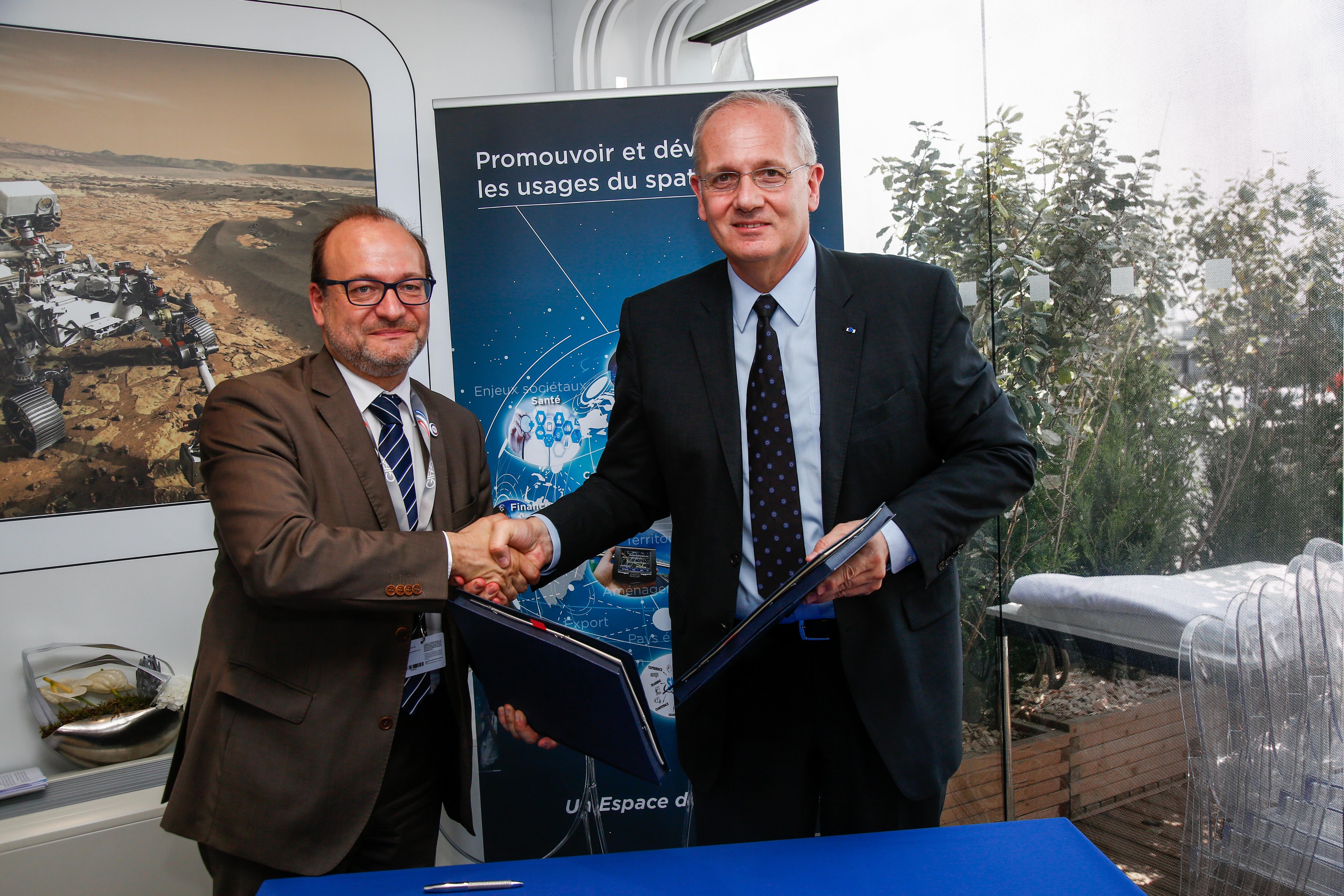CNES and AFD sign framework agreement on sustainable development


Governments, agencies and firms are structuring their efforts in pursuit of United Nations Sustainable Development Goals (SDGs), notably through the Paris Agreement on climate change, the Sendai Framework for Disaster Risk Reduction 2015-2030, the Nagoya Protocol and the Aichi Biodiversity Goals & Targets for 2020. Space is vital for accomplishing these goals and CNES is playing an active role through close cooperation with the world’s space agencies and numerous international organizations, and through its partnership with French national operators for more-regional applications. It is with this aim in mind that CNES President Jean-Yves Le Gall and AFD Director Rémy Rioux signed a framework agreement today.
Such efforts can be further boosted if agencies focus their actions in 2018 within the framework of UNISPACE+50 to synchronize the space roadmap with that of the 2030 Agenda. By observing and understanding climate, and studying and predicting climate change, satellites were instrumental in securing the success of the COP21. CNES, with ISRO, coordinated the New Delhi Declaration through which agencies have undertaken to coordinate their space assets and work towards a system designed to inform scientists and decision-makers. These assets include an international constellation of greenhouse gas-measuring satellites formed by the United States’ OCO-2, Japan’s GOSAT, China’s TANSAT and soon the French-UK MicroCarb mission to measure carbon dioxide in 2020 and the French-German MERLIN satellite to measure methane emissions in 2021.
The global vantage point of space is also a key tool for managing the kinds of disasters brought on by a changing climate. At UNISPACE III, CNES and ESA jointly proposed the adoption of the International Charter on Space and Major Disasters, which delivers timely satellite imagery in the event of a disaster to come to the aid of populations and plan long-term reconstruction of territories and infrastructures. Earth-observing satellites also allow us to keep track of natural resources like water and forests. CNES is contributing to this effort with the French-US Jason series of satellites and the French-Indian SARAL-AltiKa and Megha-Tropiques satellites, soon to be joined by the French-Chinese CFOSat and French-US SWOT missions.
_____
Press Contacts
Fabienne Lissak - Head of Media Tel. +33 (0)1 44 76 78 37 fabienne.lissak@cnes.fr
Pascale Bresson - Press Officer Tel. +33 (0)1 44 76 75 39 pascale.bresson@cnes.fr
Raphaël Sart - Press Officer Tel. +33 (0)1 44 76 74 51 raphael.sart@cnes.fr
 cp102-2017-_cnes-afd_va.pdf (pdf - 181.75 KB)
cp102-2017-_cnes-afd_va.pdf (pdf - 181.75 KB)